ABB is highlighting the exceptional quality and robustness of its robots at the trade fair. The company sees itself as a clear pioneer in this field and emphasizes that it consciously goes the extra mile to deliver durable and reliable systems.
In addition to high quality, great variety is also important: With its new modular portfolio of large industrial robots, ABB can cover a wide range of requirements and respond flexibly to specific customer requests. This makes it possible to find the right combination of payload, reach, and design for almost any application.
One highlight is the new IRB 6750S – the latest member of the shelf or console robot family. These robots are installed on pedestals or raised platforms, enabling them to work optimally “downwards.” This design makes it possible to serve the work areas below particularly efficiently.
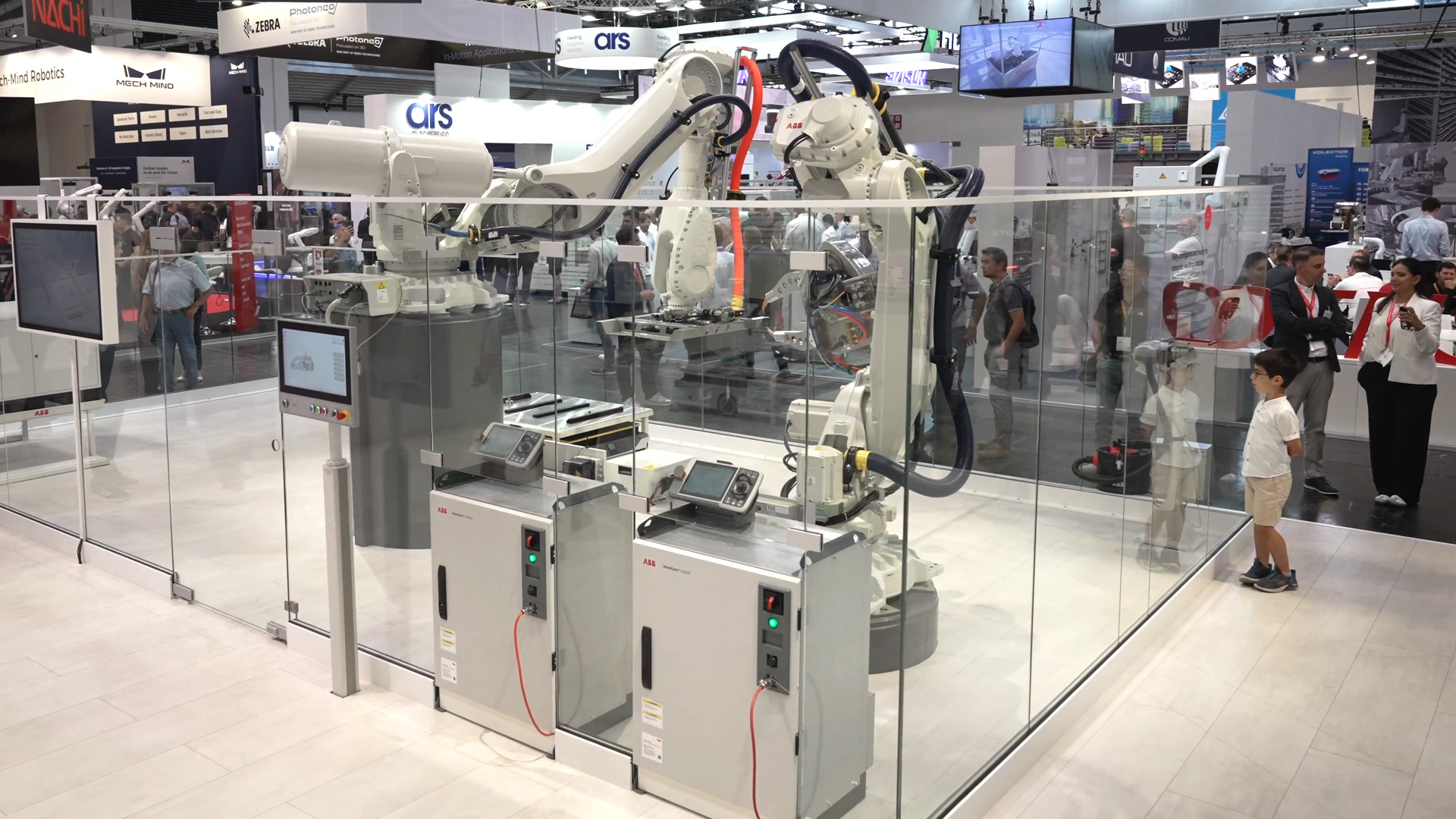
The IRB 6750S currently occupies a unique position on the market thanks to its combination of payload and reach. This opens up applications for ABB that would not be easily feasible with conventional robots in this size class.
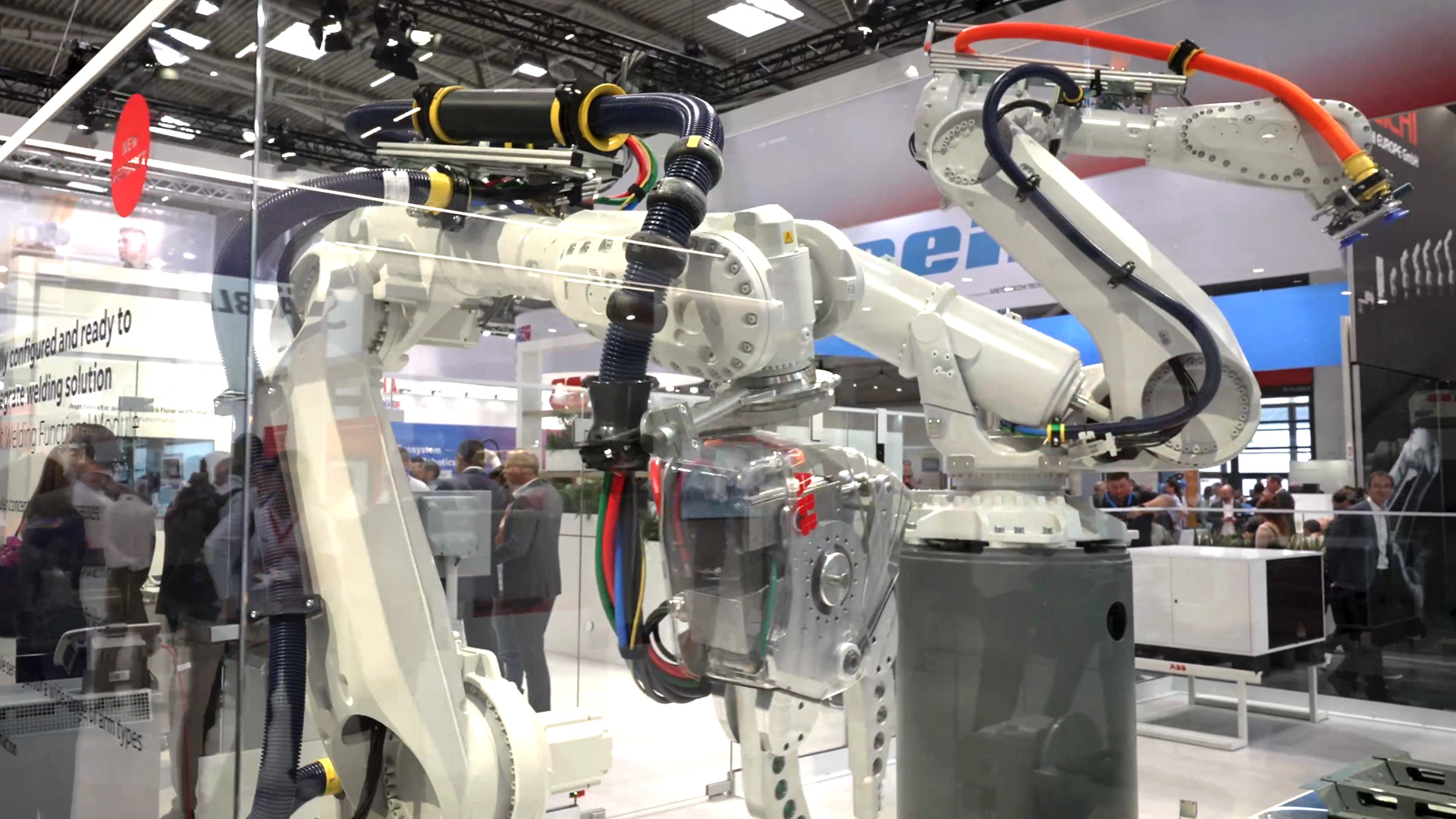
Safety plays a paramount role in large robots with payloads ranging from 90 to over 800 kilograms. ABB emphasizes that the robots are designed so that they cannot “collapse” under any circumstances. Nevertheless, the challenge remains to protect people from the enormous kinetic energy of such machines.
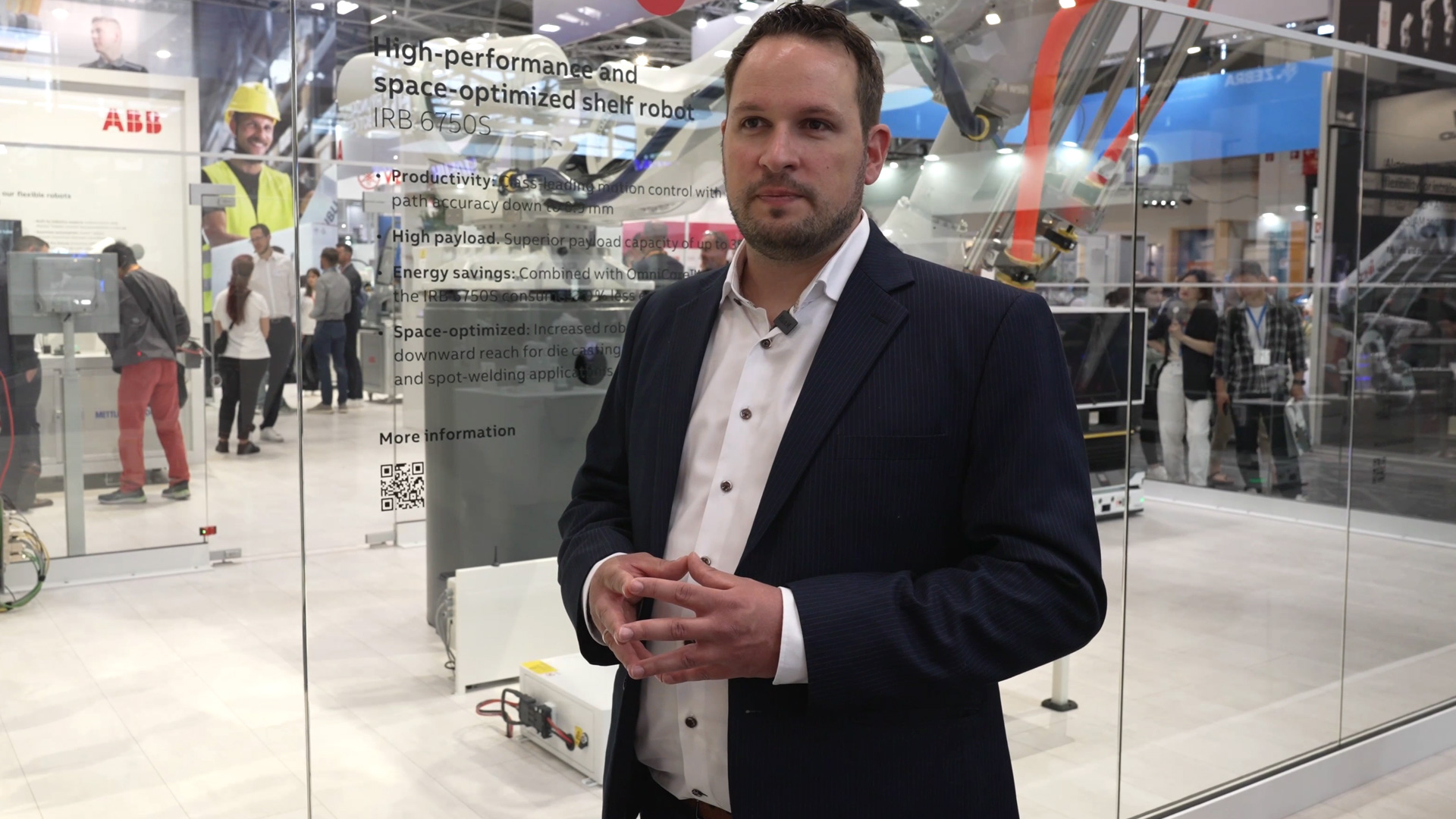
Extensive safety equipment is therefore mandatory to prevent anyone from entering the work area. The situation is completely different with ABB's cobots, or collaborative robots: they are specially designed to shut down immediately upon contact, allowing them to work safely with humans. With heavy-duty robots, this is simply not feasible due to their enormous mass.
ABB robots are used in many branches of industry. A classic application is in the automotive industry, where robots lift, move, or weld components. But ABB is thinking ahead: robots are often the better choice for forging and casting because they protect people from extreme temperatures and hazardous environments.
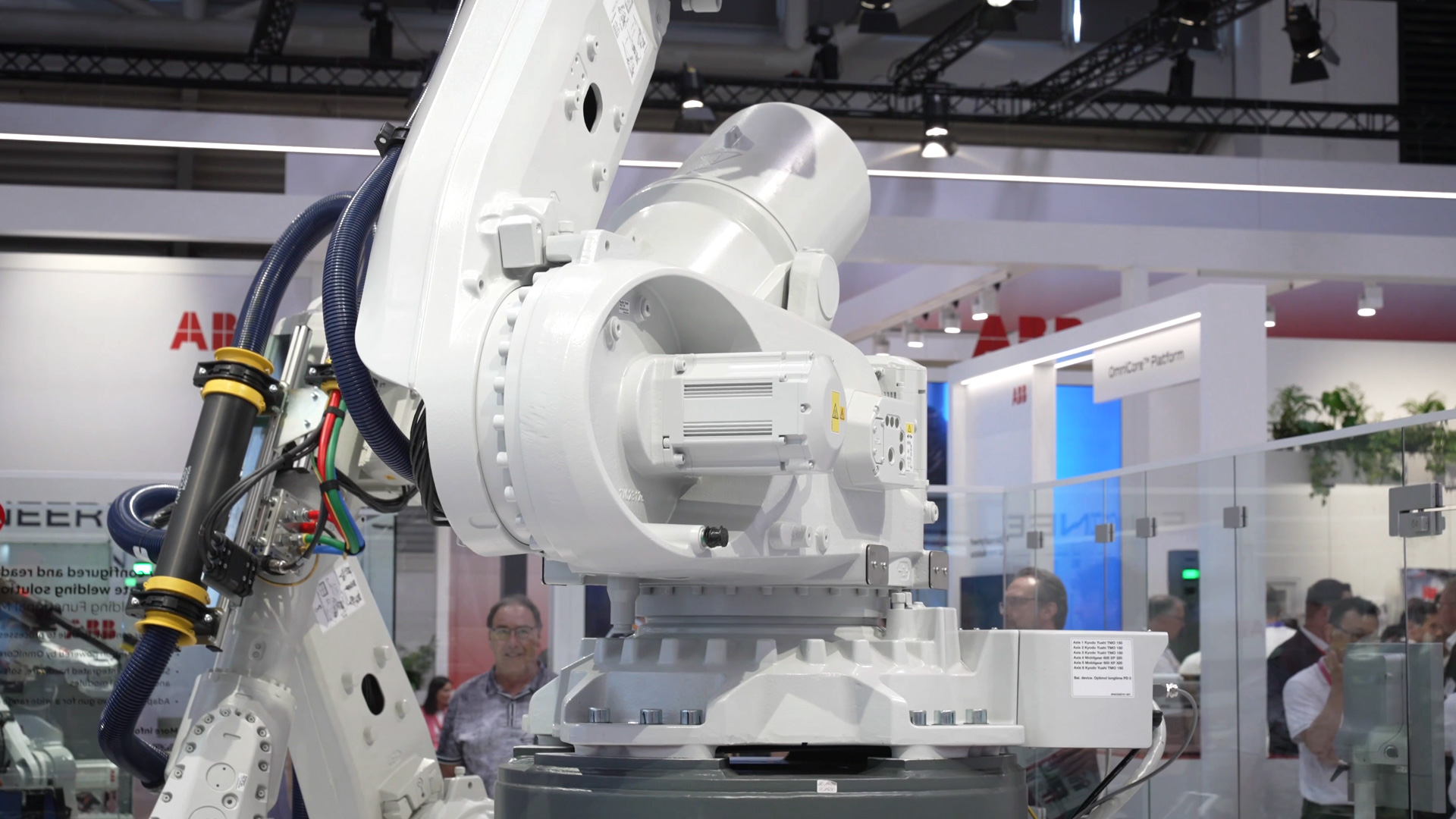
At the same time, ABB robots are used in electronics manufacturing, where cleanliness and precision are crucial, as well as in the food and packaging industries. There, for example, they handle the palletizing of large quantities of beverages, thereby increasing production capacity.
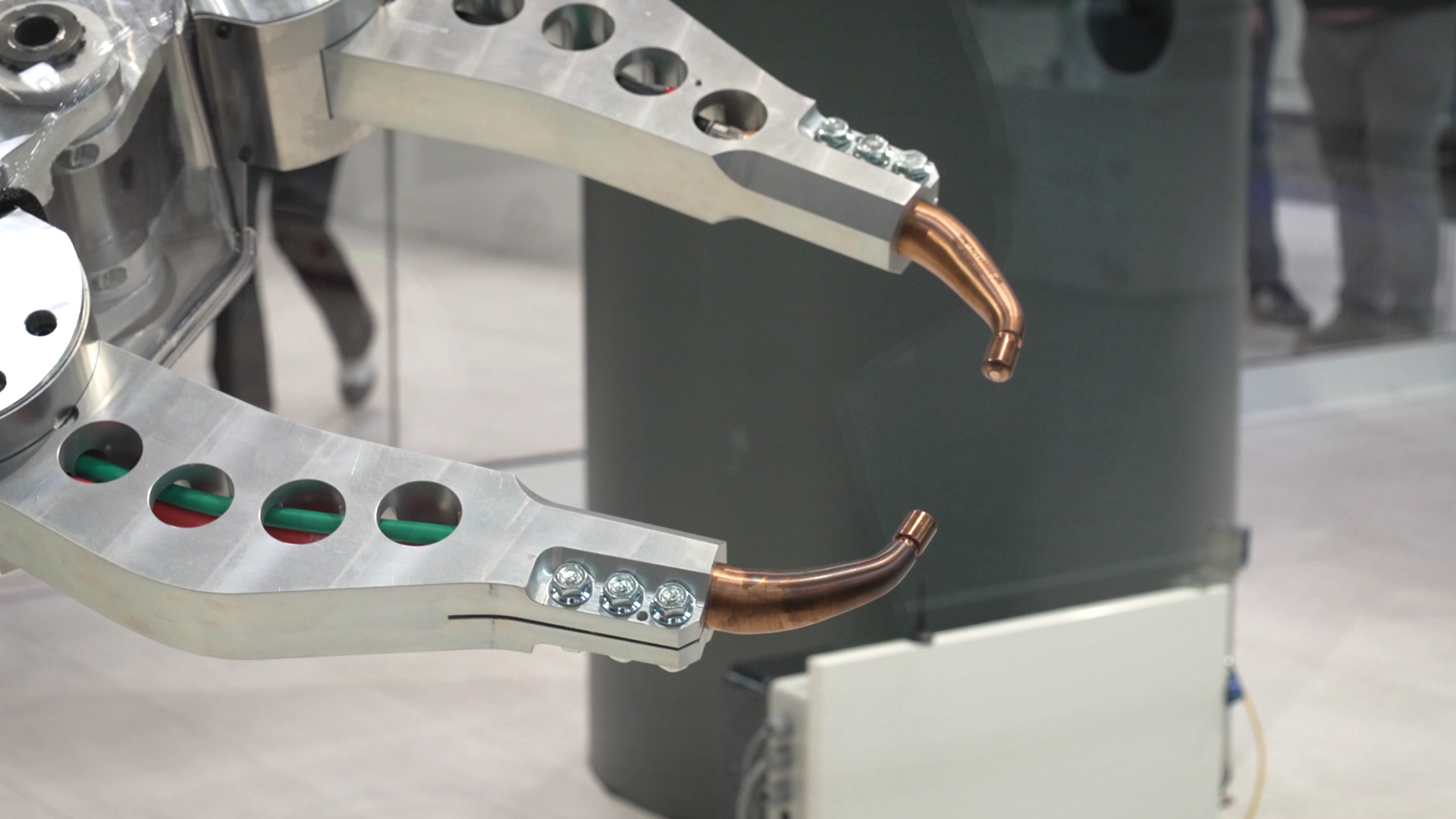
The same applies here: whenever people should not be working on the line due to heat, dirt, or weight, ABB solutions come into play.
In its core business, ABB develops both the manipulators and the controllers entirely in-house. At the same time, however, the company also relies on cooperation with suppliers to jointly advance technologies and integrate new software packages into its own control systems.
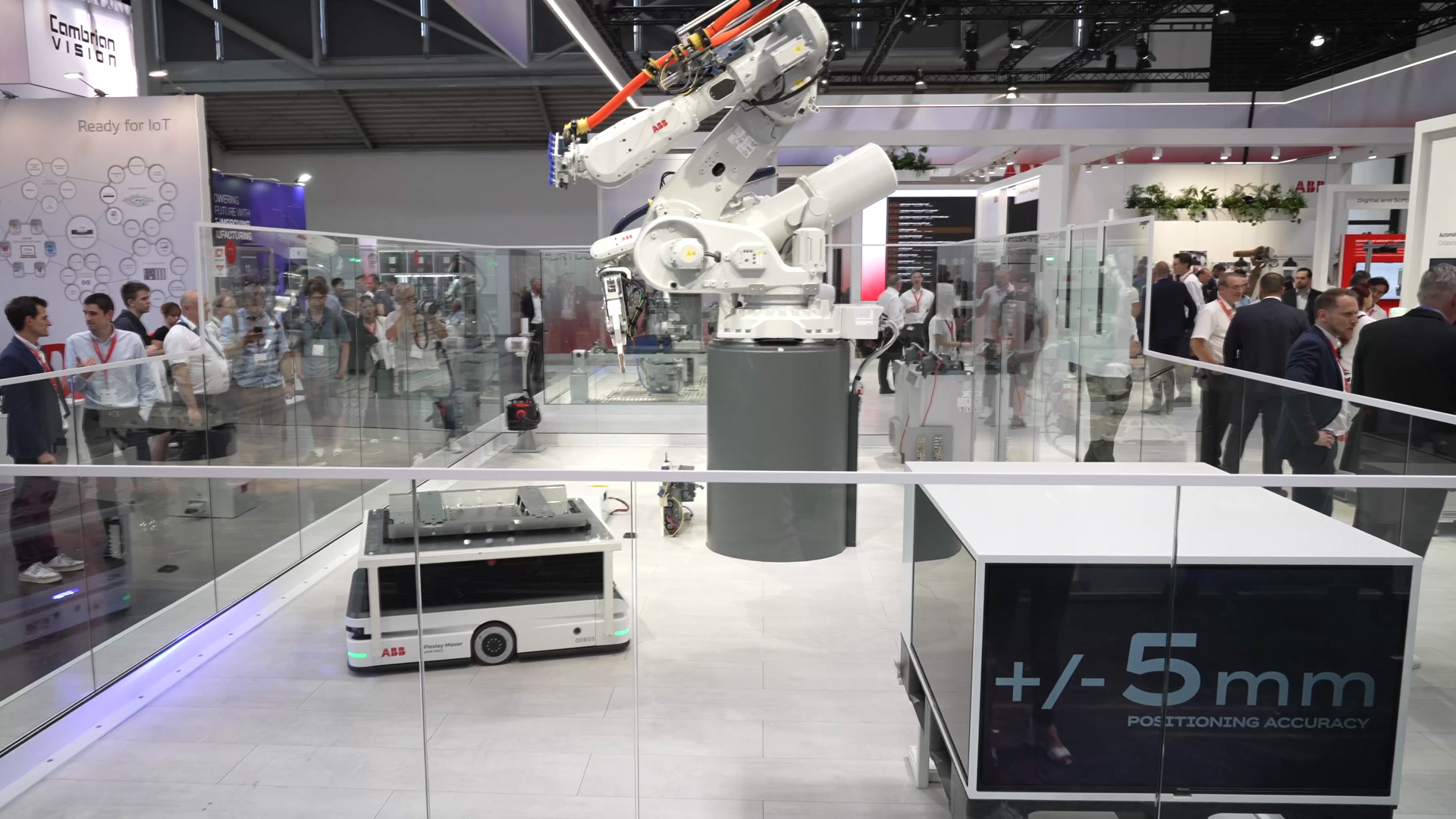
The goal is to make applications as simple and efficient as possible for customers. Even long-standing customers with extensive experience with ABB robots often expand the systems with their own software and hardware solutions. A growing ecosystem of gripping systems and applicators also ensures that ABB robots are flexibly equipped for ever new tasks.
Sustainability is a key focus. ABB is committed to consistently reducing the carbon footprint of both its own manufacturing and the robots it delivers. New generations are up to 20 percent more energy-efficient than their predecessors, making a clear contribution to climate protection even during operation.
In addition, ABB takes care to optimize recycling processes and facilitate recycling for materials such as steel and aluminum. For components containing rare earths, such as magnets, strictly controlled supply chains ensure that their origin and use can be traced.